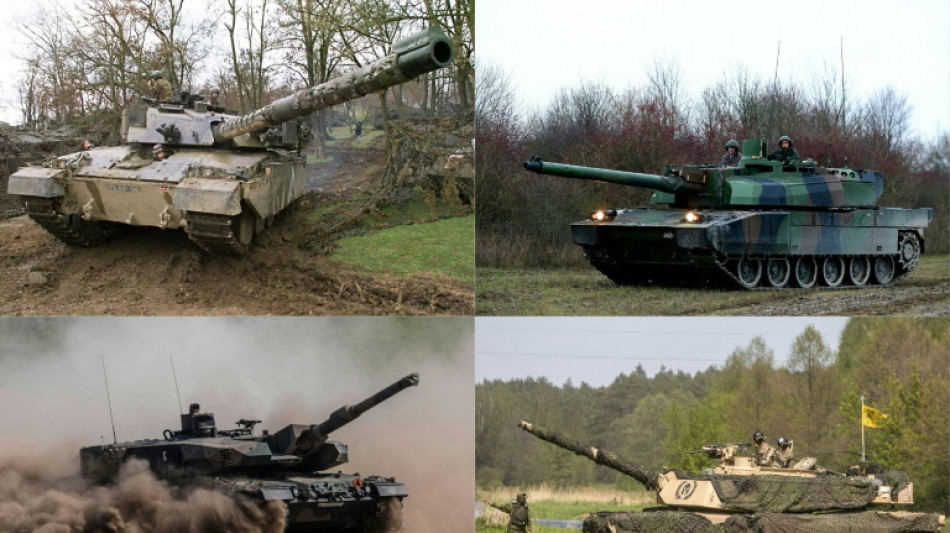
-
 Rahm out to break 2025 win drought ahead of US PGA Championship
Rahm out to break 2025 win drought ahead of US PGA Championship
-
Japan tariff envoy departs for round two of US talks
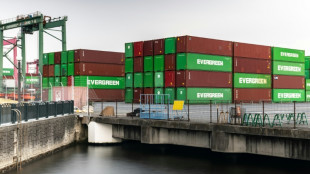
-
 Djurgarden eyeing Chelsea upset in historic Conference League semi-final
Djurgarden eyeing Chelsea upset in historic Conference League semi-final
-
Haliburton leads comeback as Pacers advance, Pistons stay alive

-
 Bunker-cafe on Korean border paints image of peace
Bunker-cafe on Korean border paints image of peace
-
Tunics & turbans: Afghan students don Taliban-imposed uniforms
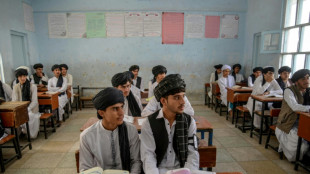
-
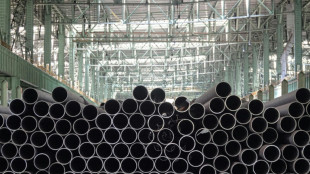 Asian markets struggle as trade war hits China factory activity
Asian markets struggle as trade war hits China factory activity
-
Norwegian success story: Bodo/Glimt's historic run to a European semi-final

-
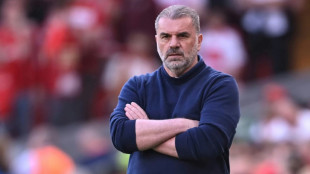 Spurs attempt to grasp Europa League lifeline to save dismal season
Spurs attempt to grasp Europa League lifeline to save dismal season
-
Thawing permafrost dots Siberia with rash of mounds

-
 S. Korea prosecutors raid ex-president's house over shaman probe: Yonhap
S. Korea prosecutors raid ex-president's house over shaman probe: Yonhap
-
Filipino cardinal, the 'Asian Francis', is papal contender

-
 Samsung Electronics posts 22% jump in Q1 net profit
Samsung Electronics posts 22% jump in Q1 net profit
-
Pietro Parolin, career diplomat leading race to be pope
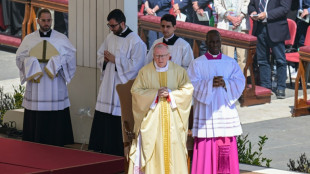
-
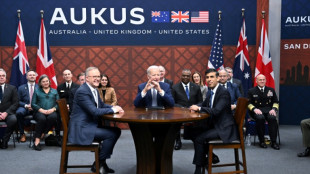 Nuclear submarine deal lurks below surface of Australian election
Nuclear submarine deal lurks below surface of Australian election
-
China's manufacturing shrinks in April as trade war bites
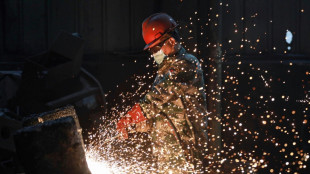
-
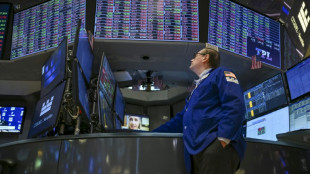 Financial markets may be the last guardrail on Trump
Financial markets may be the last guardrail on Trump
-
Swedish journalist's trial opens in Turkey
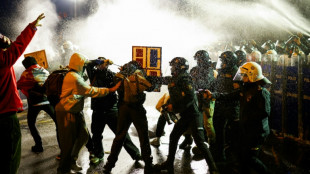
-
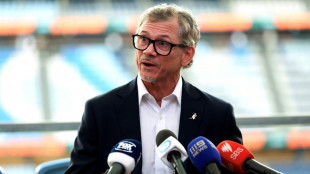 Kiss says 'honour of a lifetime' to coach Wallabies at home World Cup
Kiss says 'honour of a lifetime' to coach Wallabies at home World Cup
-
US growth figure expected to make for tough reading for Trump
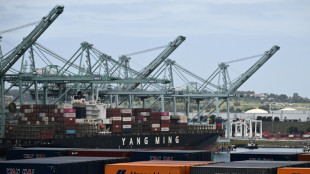
-
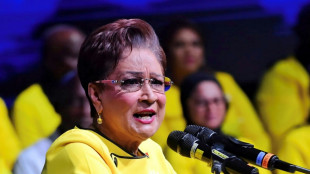 Opposition leader confirmed winner of Trinidad elections
Opposition leader confirmed winner of Trinidad elections
-
Snedeker, Ogilvy to skipper Presidents Cup teams: PGA Tour

-
 Win or bust in Europa League for Amorim's Man Utd
Win or bust in Europa League for Amorim's Man Utd
-
Trump celebrates 100 days in office with campaign-style rally
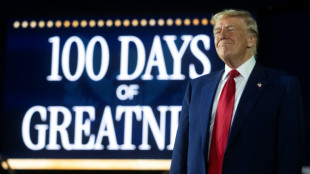
-
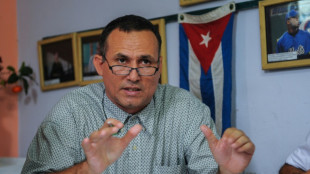 Top Cuban dissidents detained after court revokes parole
Top Cuban dissidents detained after court revokes parole
-
Arteta urges Arsenal to deliver 'special' fightback against PSG

-
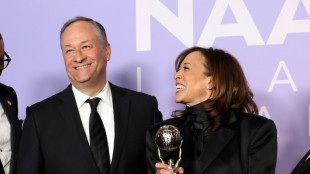 Trump fires Kamala Harris's husband from Holocaust board
Trump fires Kamala Harris's husband from Holocaust board
-
Pakistan says India planning strike as tensions soar over Kashmir attack
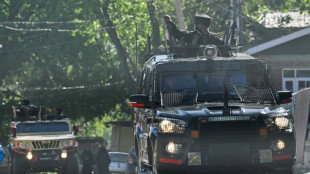
-
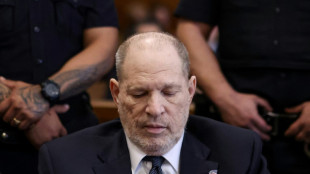 Weinstein sex attack accuser tells court he 'humiliated' her
Weinstein sex attack accuser tells court he 'humiliated' her
-
France accuses Russian military intelligence over cyberattacks
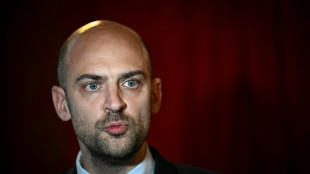
-
 Global stocks mostly rise as Trump grants auto tariff relief
Global stocks mostly rise as Trump grants auto tariff relief
-
Grand Vietnam parade 50 years after the fall of Saigon
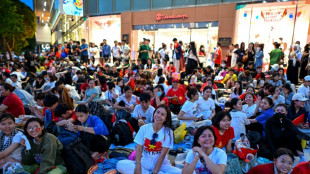
-
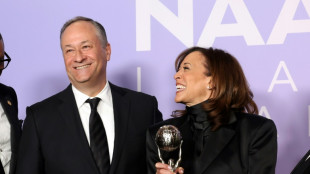 Trump fires ex first gentleman Emhoff from Holocaust board
Trump fires ex first gentleman Emhoff from Holocaust board
-
PSG 'not getting carried away' despite holding edge against Arsenal

-
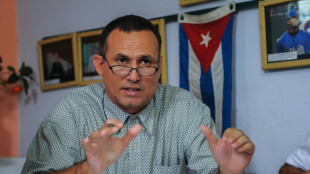 Cuban dissidents detained after court revokes parole
Cuban dissidents detained after court revokes parole
-
Sweden stunned by new deadly gun attack
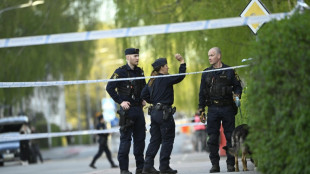
-
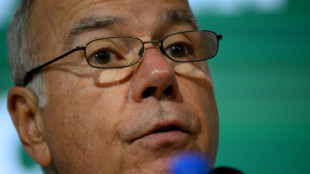 BRICS blast 'resurgence of protectionism' in Trump era
BRICS blast 'resurgence of protectionism' in Trump era
-
Trump tempers auto tariffs, winning cautious praise from industry
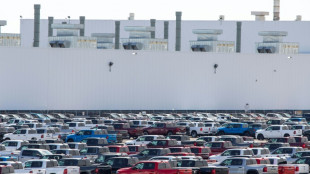
-
 'Cruel measure': Dominican crackdown on Haitian hospitals
'Cruel measure': Dominican crackdown on Haitian hospitals
-
'It's only half-time': Defiant Raya says Arsenal can overturn PSG deficit
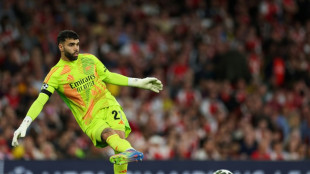
-
 Dembele sinks Arsenal as PSG seize edge in Champions League semi-final
Dembele sinks Arsenal as PSG seize edge in Champions League semi-final
-
Les Kiss to take over Wallabies coach role from mid-2026

-
 Real Madrid's Rudiger, Mendy and Alaba out injured until end of season
Real Madrid's Rudiger, Mendy and Alaba out injured until end of season
-
US threatens to quit Russia-Ukraine effort unless 'concrete proposals'
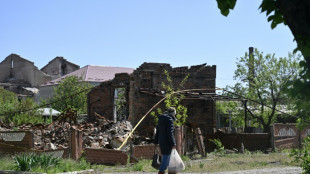
-
 Meta releases standalone AI app, competing with ChatGPT
Meta releases standalone AI app, competing with ChatGPT
-
Zverev crashes as Swiatek scrapes into Madrid Open quarter-finals
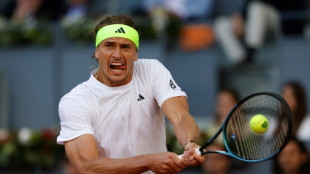
-
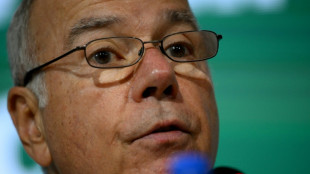 BRICS members blast rise of 'trade protectionism'
BRICS members blast rise of 'trade protectionism'
-
Trump praises Bezos as Amazon denies plan to display tariff cost
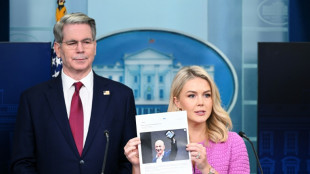
-
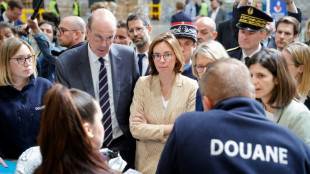 France to tax small parcels from China amid tariff fallout fears
France to tax small parcels from China amid tariff fallout fears
-
Hong Kong releases former opposition lawmakers jailed for subversion


Conflicts spur 'unprecedented' rise in military spending
Worldwide military expenditure saw its steepest rise in 2024 since the end of the Cold War, reaching $2.7 trillion as wars and rising tensions drove up spending, researchers said Monday.
Military spending rose worldwide with particularly large increases in Europe and the Middle East, according to a new report by the Stockholm International Peace Research Institute (SIPRI).
Several European countries had seen "unprecedented" rises in their military spending, the report noted.
In real terms, spending rose by 9.4 percent globally compared to 2023, with 2024 marking the 10th year of consecutive spending increases.
"This was really unprecedented," Xiao Liang, a researcher with the SIPRI Military Expenditure and Arms Production Programme, told AFP.
"It was the highest year-on-year increase since the end of the Cold War."
While there may have been steeper increases during the Cold War, data for the Soviet Union is not available, Liang added.
More than 100 countries, including all of the 15 largest spenders, increased their military budgets last year, said the report.
- Profound impact -
"This really speaks to the heightened geopolitical tensions," Liang said. The spending increase was likely to have "a very profound socio-economic and political impact", he added.
"Countries have to make trade-offs in their budgetary decisions," he said.
"For example, we've seen many European countries cutting other spending like international aid to fund the increase in military spending, and... trying to raise taxes or rely on loans or debt to fund the spending," Liang said.
The main contributor to the rise in expenditure was the European region including Russia, where spending rose by 17 percent to $693 billion.
All European countries, except Malta, expanded their budgets, "pushing European military spending beyond the level recorded at the end of the Cold War," SIPRI said.
Russia's military expenditure reached $149 billion in 2024: a 38-percent increase on the previous year and a doubling since 2015.
Ukraine's military spending grew by 2.9 percent to reach $64.7 billion.
While that sum only corresponds to 43 percent of Russia's arms spending, for Ukraine it is the equivalent of 34 percent of its GDP. That means it is carrying the highest military burden of any country.
- Germany rearming -
Germany's spending increased by 28 percent, reaching $88.5 billion, overtaking India as the fourth largest in the world.
"Germany became the biggest spender in Central and Western Europe for the first time since its reunification," Liang noted.
The world's largest spender, the United States, increased expenditure by 5.7 percent, reaching $997 billion. That alone accounts for 37 percent of worldwide spending and 66 percent of the military spending among NATO countries.
Total military spending by the 32 members of the US-led alliance rose to 1.5 trillion as all members increased their spending.
"We've seen in 2024 that 18 out of the 32 NATO countries reached the two-percent GDP spending target, which is the highest since the founding of the alliance," Liang said.
While some of the increases have been a result of European military aid to Ukraine, it has also been fuelled by concerns of potential US disengagement with the alliance.
"There has really been a shift in European defence policies, where we will see large-scale procurement plans into the arms industry in the years to come," Liang explained.
Military budgets also drastically grew in the Middle East to an estimated $243 billion, an increase of 15 percent from 2023.
As Israel continued its offensive in Gaza, its military expenditure surged by 65 percent to $46.5 billion in 2024. SIPRI noted that this represented "the steepest annual increase since the Six-Day War in 1967".
In contrast, Iran's fell by 10 percent to $7.9 billion in 2024, "despite its involvement in regional conflicts and its support for regional proxies", the report added.
"The impact of sanctions on Iran severely limited its capacity to increase spending," said SIPRI.
The world's second-largest spender, China, increased its military budget by 7.0 percent to an estimated $314 billion, "marking three decades of consecutive growth".
China -- which has been investing in modernising its military and expansion of cyberwarfare capabilities and nuclear arsenal -- accounted for half of all military spending in Asia and Oceania.
I.Stoeckli--VB
